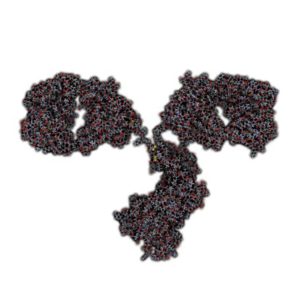Polyclonal anti-RhD antibodies are used to prevent hemolytic disease of the fetus and newborn. These antibodies are currently collected from RhD-negative men who have been intentionally immunized with RhD+ red blood cells (RBCs). Monoclonal and recombinant antibodies have been produced in order to generate a renewable source of anti-RhD antibodies, but may not be as effective. To address this issue and optimize suppression of alloantibody formation, single-monoclonal RhD-antibodies and combinations of monoclonal antibodies were injected into immunologically-naïve mice, and the anti-allogeneic RBC antibody responses were measured. While monoclonal anti-RhD antibodies suppressed the alloimmune response to a small degree, combining two or more monoclonal antibodies that target unique epitopes was as efficient at suppressing RBC alloimmunization as polyclonal preparations in mice. Blends of monoclonal antibodies may be helpful in preventing hemolytic disease of the fetus and newborn.
- Bernardo L, Amash A, Marjoram D, Lazarus AH. Antibody-mediated immune suppression is improved when blends of anti-RBC monoclonal antibodies are used in mice. Blood 2016;128: 1076-80.
- Stowell SR. Working together to block alloimmunization. Blood 2016;128: 1029-30.

